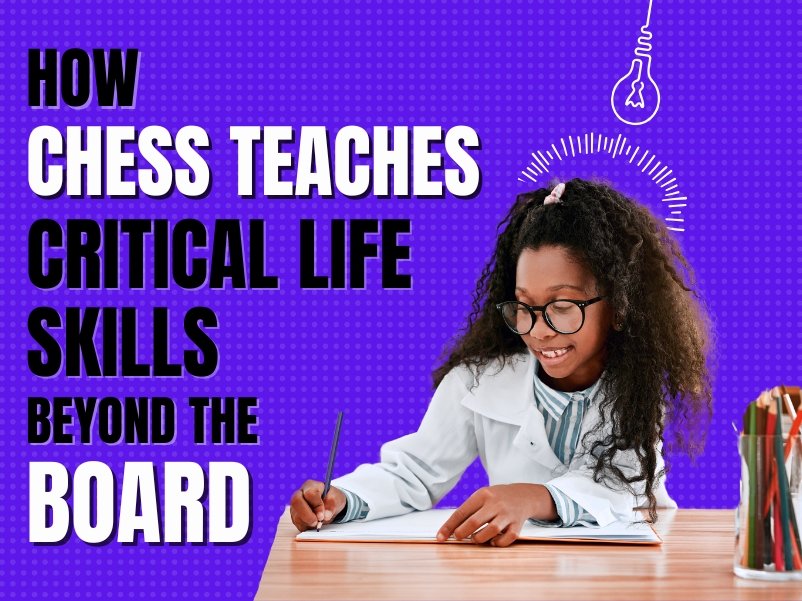How Chess Teaches Critical Life Skills Beyond the Board
info@mediamatrix.co.in
November 28, 2024

Chess is more than a game of kings, queens, and knights; it’s a world where players learn invaluable life skills with every move. Here’s how chess fosters life skills that benefit kids (and adults!) far beyond the board.
- Strategic Thinking
Chess requires players to think several moves ahead, always considering consequences and options. This approach encourages kids to plan and think strategically—skills that help in all areas, from school projects to personal decisions.
- Decision-Making Under Pressure
Each chess game involves making decisions under time constraints. Players have to assess situations quickly, weighing risks and rewards. This teaches them how to make thoughtful decisions even when they’re under pressure, a skill that proves useful in stressful situations at school, work, or even personal life.
- Patience and Perseverance
Chess is not won in one move. Every game is a journey that requires patience and persistence. Sometimes, players have to wait for the right moment to make a move, teaching kids and adults alike the value of staying calm, composed, and persistent—qualities that are crucial in achieving long-term goals.
- Resilience Through Failure
Losing is part of chess, and every game offers a chance to learn and improve. Players develop resilience as they learn to handle losses, analyze mistakes, and come back stronger. This resilience is essential for handling setbacks in life, whether it’s an exam failure or a challenging situation at work.
- Analytical Skills
To play chess well, players need to analyze the board, predict opponents’ moves, and adapt strategies accordingly. This process strengthens analytical thinking, helping children and adults improve their ability to break down problems and identify effective solutions—a valuable skill in academics, business, and everyday problem-solving.
- Self-Discipline
Chess encourages players to be disciplined in their thinking and actions. They must learn to control impulsive moves and stick to a strategic approach. This self-discipline helps in developing habits that are beneficial for studies, hobbies, and career growth.
- Confidence and Self-Esteem
Chess challenges players, and every improvement or win boosts confidence. Learning to trust one’s decisions and skills builds self-esteem, a critical factor for success in school, work, and personal relationships.
- Focus and Concentration
Chess demands intense concentration, as a single distracted move can cost the game. Practicing focus and concentration on the board trains players to apply the same in other areas, whether it’s studying for exams, working on a project, or even listening attentively to others.
- Effective Communication and Empathy
Especially in team-based chess environments or group coaching, players learn to discuss strategies, respect others’ viewpoints, and work together. They develop empathy by understanding opponents’ perspectives, which is crucial for collaboration and building relationships in life.
- Adapting to Change
In chess, the board changes constantly. Players learn to adjust their strategies according to the new scenarios that arise, making them more flexible and adaptable in the face of unexpected life challenges.
Chess is more than just a game; it’s a training ground for life. At First Move Chess Academy, we guide students not only in mastering chess but also in building these essential life skills. Ready to help your child—or yourself—unlock the life lessons hidden in this incredible game? Join us and discover a whole new world of learning!
Recent Posts
Have Any Question?
- (+62)81 6724 125
- support@domain.com

